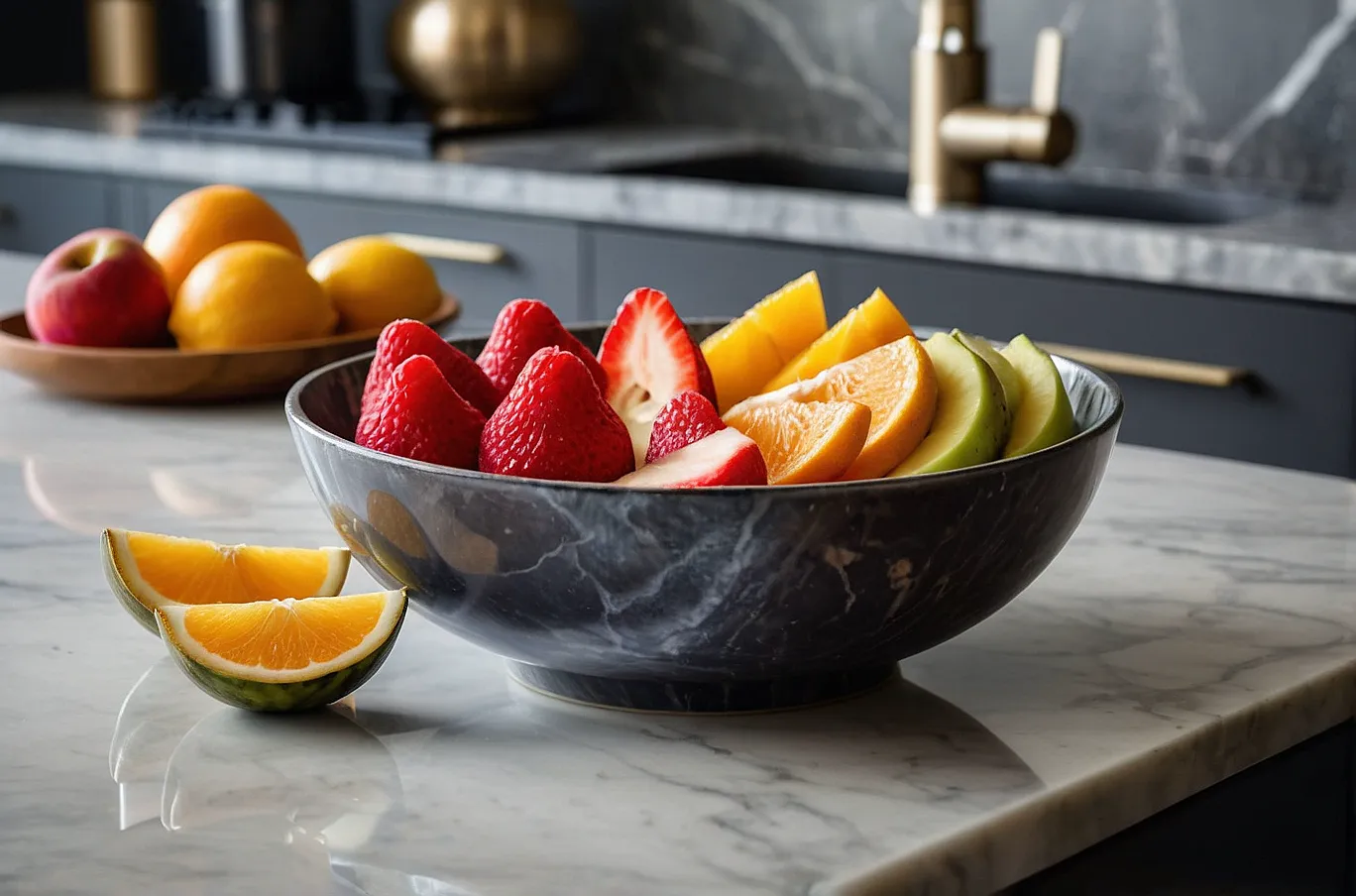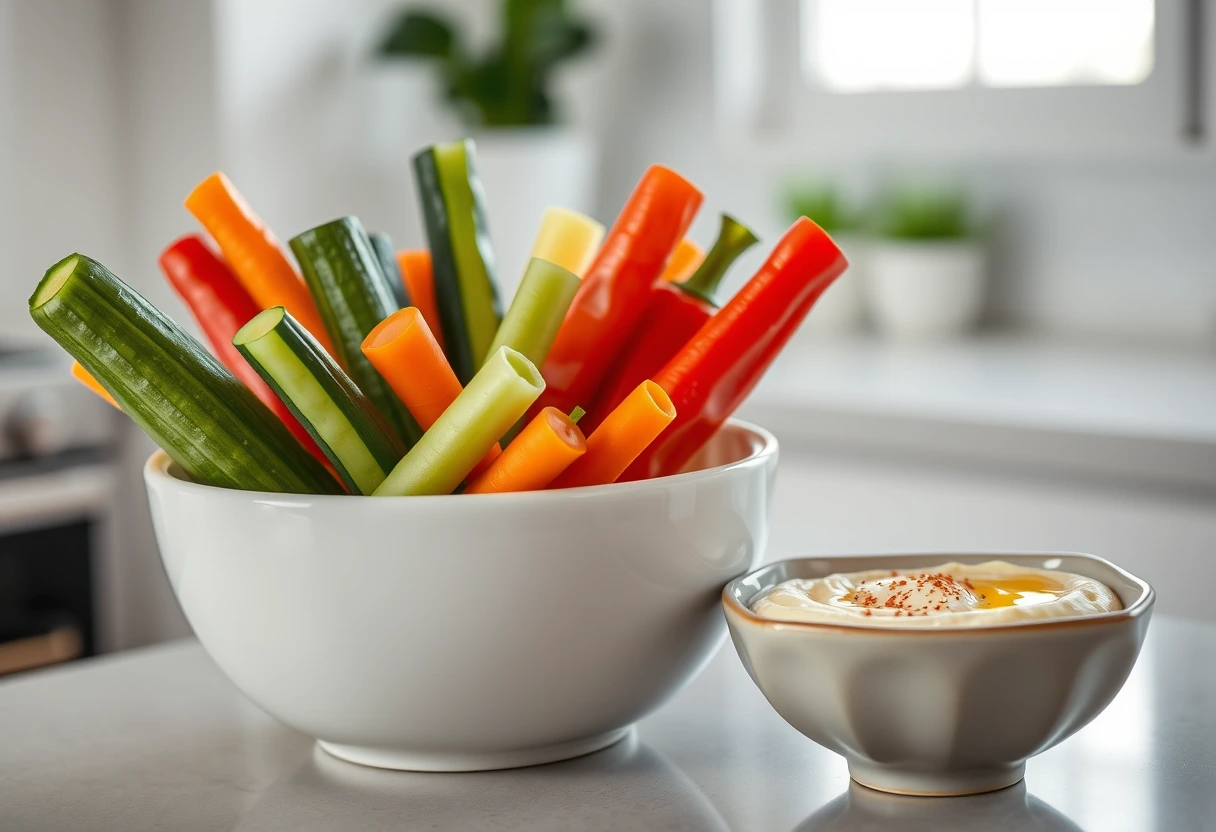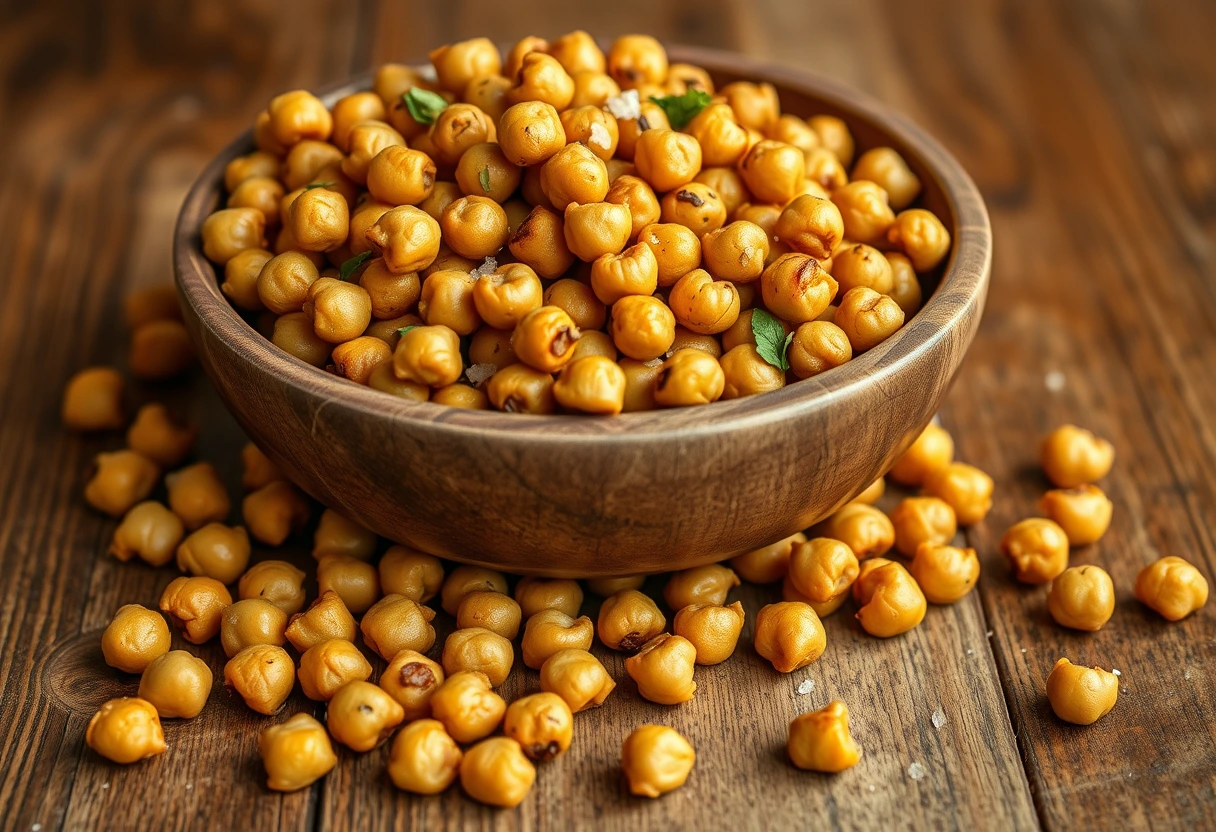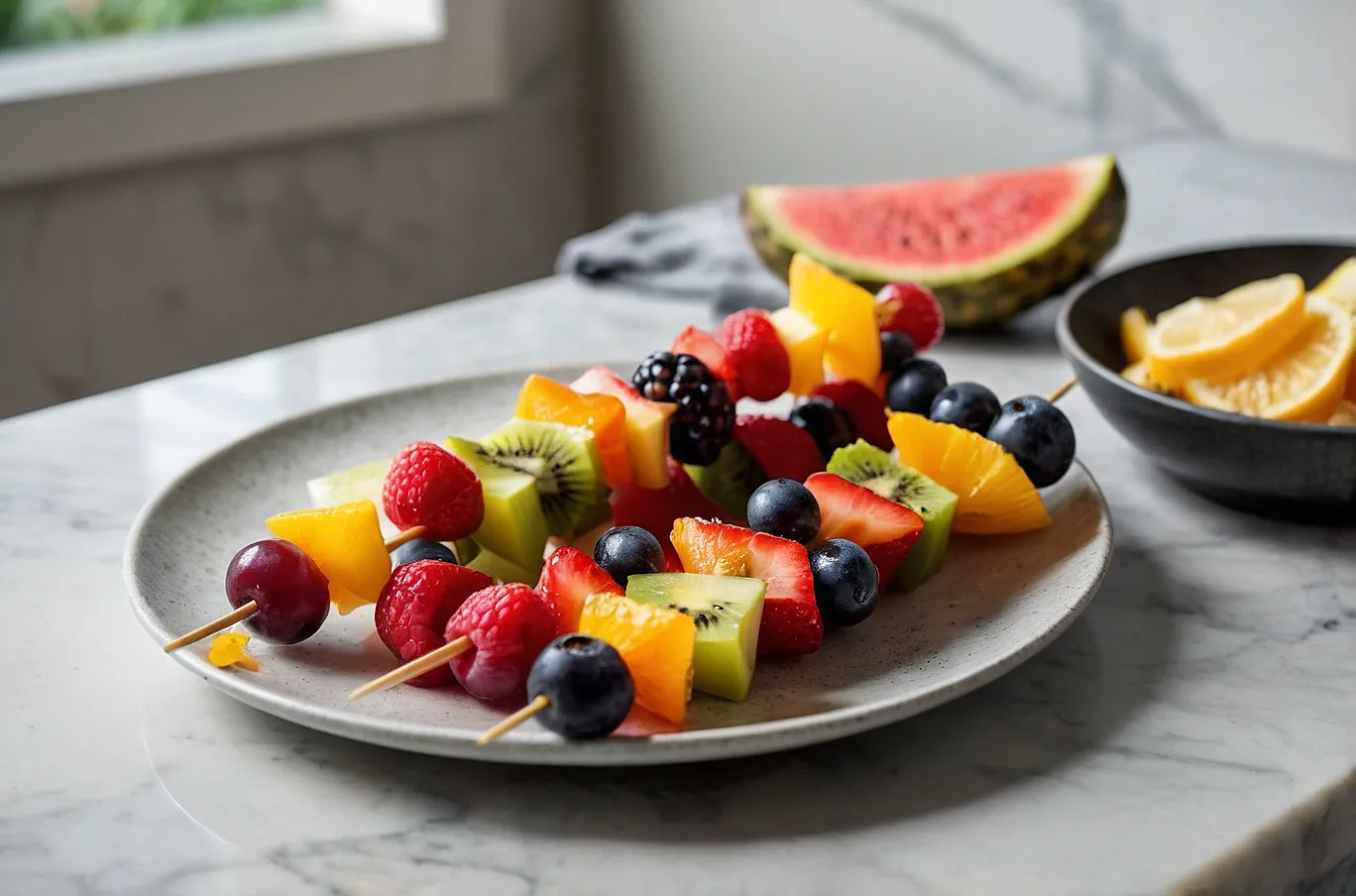 Other
OtherQuick and Healthy Snacks Kids Will Love
As a busy mother, juggling work, household chores, and the endless demands of raising vibrant children can feel like a marathon. One of the biggest challenges often revolves around meal times, especially when hunger strikes between meals. It’s easy to reach for pre-packaged, sugar-laden options, but deep down, we all want to provide our little ones with nutritious fuel that supports their growth and development. This is where the magic of quick and healthy snacks kids will love comes into play. Forget elaborate recipes; we're talking about simple, delicious, and nutrient-packed bites that satisfy picky eaters and fit seamlessly into your hectic schedule. Providing wholesome snack options is crucial for maintaining energy levels, supporting cognitive function, and preventing overeating at main meals. Let's dive into practical strategies and delightful ideas that will transform your snack game, making healthy eating an enjoyable part of your family's routine.
The Power of Smart Snacking for Growing Bodies
Why Healthy Snacks Matter
In the whirlwind of daily life, it's tempting to view snacks as mere stopgaps. However, for growing children, they are vital nutritional opportunities. Kids have smaller stomachs and higher metabolic rates than adults, meaning they need more frequent fuel. Thoughtful snack choices can help fill nutritional gaps, especially when main meals might not provide all necessary vitamins and minerals. Think of snacks as mini-meals that contribute significantly to their overall dietary intake, providing sustained energy throughout their active days. They play a critical role in brain development and maintaining focus during school or play.
Avoiding the Sugar Trap
One of the biggest pitfalls in children's snacking is the prevalence of added sugars. These often lead to energy crashes, mood swings, and contribute to long-term health issues. Learning to identify hidden sugars in processed foods is the first step toward making better choices. Opting for whole, unprocessed foods naturally reduces sugar intake and encourages a preference for natural flavors. A key strategy is to involve your children in the snack preparation process; when they feel a sense of ownership, they are more likely to enjoy and eat the healthy offerings. This also teaches them valuable lessons about nutrition and food choices from a young age.

Fruitful Foundations: Naturally Sweet and Nutritious
Berries, Bananas, and Beyond
Fruits are nature's candy, offering essential vitamins, minerals, and fiber without the added sugars found in many packaged treats. They are the epitome of convenient, healthy snacks for children. Berries like strawberries, blueberries, and raspberries are packed with antioxidants and can be enjoyed fresh, frozen, or blended into smoothies. Bananas are excellent sources of potassium and provide quick energy. Apples, pears, oranges, and grapes are also fantastic options. For variety, try slicing apples and serving them with a sprinkle of cinnamon or a small dollop of natural peanut butter for added protein. Keeping a fruit bowl easily accessible can encourage children to grab a healthy bite whenever hunger strikes. Learning to identify peak seasonality for different fruits can enhance their flavor and nutritional value, making them even more appealing.
Creative Fruit Combos
Sometimes, presentation is everything. Transforming simple fruit into fun, appealing shapes or combinations can make a world of difference for picky eaters. Fruit skewers with alternating colors are always a hit. You can also pair fruit with a small amount of protein or healthy fat to make the snack more filling and satisfying. Consider:
- Apple slices with a thin layer of almond butter.
- Banana "sushi" (banana rolled in nut butter and sprinkled with a few seeds).
- Greek yogurt parfaits layered with berries and a sprinkle of granola.
- Frozen grapes or banana slices for a cool, refreshing treat, especially on warm days.
These combinations not only add more nutrients but also introduce different textures and flavors, making snack time an exciting adventure rather than a chore. The more varied the fruit intake, the broader the spectrum of nutrients your child receives, contributing to their overall wellness. Don't underestimate the appeal of a beautifully arranged plate.
Veggie Victories: Making Greens (and Reds, and Oranges) Fun
Crunchy Carrots, Cucumbers, and Bell Peppers
Vegetables might not be the first thing that comes to mind when thinking of healthy snacks for children, but they are packed with fiber, vitamins, and minerals. The key is to make them appealing. Crunchy vegetables like carrot sticks, cucumber slices, and bell pepper strips (in various colors for visual appeal) are excellent choices. They offer a satisfying crunch and can be surprisingly popular, especially when paired with a delicious dip. Preparing these ahead of time in small containers makes them easily accessible for grab-and-go moments. You might find that children are more willing to try vegetables if they are offered consistently and without pressure. It’s about building a positive relationship with all food groups.
Dipping Delights: Hummus, Guacamole, and Yogurt Dips
Dips are a fantastic way to encourage vegetable consumption. Hummus, made from chickpeas, is rich in protein and fiber, making it a super healthy and filling dip. Guacamole, packed with healthy fats from avocados, is another popular choice. For a creamy, protein-rich option, try a simple Greek yogurt dip seasoned with a little dill or chives. Remember to offer a variety of dipping options to keep things interesting. Small, child-friendly containers for dips can make snack time less messy and more appealing. Experimenting with different flavors can help you discover which quick and healthy snack dips your kids will love most. Children enjoy the interactive nature of dipping, which can turn a simple snack into a fun activity.

Protein-Packed Powerhouses for Sustained Energy
Cheese, Yogurt, and Eggs: Building Blocks
Protein is essential for growth, repair, and sustained energy, making protein-rich items ideal healthy snacks for children. Cheese sticks or cubes are convenient and calcium-rich. Plain Greek yogurt offers a significant protein boost, and you can sweeten it naturally with fruit or a touch of honey (for children over one year old). Hard-boiled eggs are another fantastic option; they are portable, packed with protein, and can be made in advance. These options provide essential amino acids necessary for muscle development and overall health, helping to keep kids full longer and preventing energy slumps. Introducing a variety of protein sources also ensures a broad spectrum of nutrients are consumed.
Nut Butters and Seeds: Spreads and Sprinkles
When there are no allergies, nut butters (peanut, almond, cashew) are excellent sources of protein and healthy fats. Spread them on whole-grain crackers, apple slices, or celery sticks. Seeds like chia, flax, and hemp can be sprinkled into yogurt, smoothies, or oatmeal for added fiber, omega-3s, and protein. SunButter (made from sunflower seeds) is a great alternative for those with nut allergies. Always supervise young children with sticky foods like nut butter to prevent choking hazards. These healthy snack ideas not only provide vital nutrients but also offer different textures and flavors that can appeal to adventurous palates. Healthy fats are particularly important for brain development in young children, making these snacks particularly beneficial.
Whole Grains and Legumes: Fiber-Rich Fuel
Whole-Grain Crackers and Cereal
Choosing whole grains over refined grains ensures your child gets more fiber and nutrients. Whole-grain crackers are a versatile base for toppings like cheese, nut butter, or even a slice of avocado. Look for crackers with minimal added sugar and high fiber content. A small bowl of whole-grain cereal with milk can also serve as a quick and healthy snack, especially if you choose options low in sugar. These provide complex carbohydrates that release energy slowly, helping to maintain stable blood sugar levels. They are an excellent alternative to highly processed snack foods. Always check the ingredient list to ensure "whole grain" is listed as the first ingredient.
Roasted Chickpeas and Edamame
Legumes are often overlooked but are powerhouse healthy snacks for children. Roasted chickpeas are incredibly satisfying; they are crispy, savory, and rich in protein and fiber. You can season them with various spices like paprika, garlic powder, or even a touch of cinnamon for a sweet twist. Edamame (steamed soybeans) are another fantastic option. They are fun to pop out of their pods and are loaded with protein, fiber, and essential vitamins. Both can be prepared in batches and stored for easy access. These plant-based snacks are particularly beneficial for families exploring more vegetarian or vegan options. The tactile experience of eating edamame can also be engaging for children.

Hydration Heroes: Beyond Plain Water
Smoothies: A Nutrient Powerhouse in a Cup
Smoothies are a fantastic way to pack a variety of nutrients into a single, appealing drink, making them ultimate quick and healthy snacks kids will absolutely love. They are especially great for getting fruits and vegetables into reluctant eaters. Start with a base of milk (dairy or non-dairy) or plain yogurt, then add a handful of spinach (its flavor is often masked by fruit), half a banana, and a cup of mixed berries. For an extra protein boost, add a tablespoon of nut butter or chia seeds. The possibilities are endless, and you can tailor them to your child's preferences. Smoothies offer hydration along with a concentrated dose of vitamins and fiber. Experimenting with different fruit and vegetable combinations can make discovering new flavors an exciting activity for your child.
Infused Water and Unsweetened Teas
While water is always the best choice for hydration, sometimes children (and adults!) crave something with a bit more flavor. Instead of sugary juices or sodas, try infused water. Simply add slices of fruit like cucumber, lemon, lime, or berries to a pitcher of water and let it sit for a few hours in the fridge. This adds a subtle, refreshing flavor without any added sugar. For older children, a small amount of unsweetened herbal tea (like peppermint or chamomile) can also be a calming, healthy beverage option. Teaching children to appreciate the natural flavors of infused water can help them avoid sugary drinks in the long run. Providing attractive, kid-friendly water bottles can also encourage them to drink more throughout the day.
Homemade & Handheld: Snack Recipes for Busy Moms
Energy Bites and Granola Bars
Homemade snacks give you complete control over the ingredients, ensuring they are free from excessive sugar and unhealthy additives. Energy bites are incredibly easy to make: combine oats, nut butter, honey/maple syrup, and optional add-ins like chia seeds, shredded coconut, or mini chocolate chips. Roll them into balls and chill. These no-bake healthy snacks for children are perfect for on-the-go. Similarly, homemade granola bars can be customized with your family's favorite nuts, seeds, and dried fruits. They are far superior to store-bought versions that often contain high fructose corn syrup. Involving children in the rolling and mixing process can make them more enthusiastic about eating what they helped prepare. These are perfect make-ahead options that simplify daily meal prep.
Muffins and Mini Frittatas
Baking a batch of healthy muffins or mini frittatas on the weekend can provide quick and nutritious options throughout the week. For muffins, opt for recipes that use whole wheat flour, reduce sugar, and incorporate fruits or vegetables like grated zucchini, carrots, or mashed bananas. Mini frittatas (or "egg muffins") are excellent savory healthy snacks for children; whisk eggs with finely chopped vegetables (spinach, bell peppers, onions) and perhaps a sprinkle of cheese, then bake in a muffin tin. They are protein-packed, portable, and a great way to sneak in veggies. These versatile baked goods can be easily frozen and thawed as needed, offering maximum convenience for busy parents. They are also ideal for breakfast on the go, providing sustained energy for school mornings.

Meal Prep Strategies for Stress-Free Snacking
The Power of Batch Prepping
The secret to consistently providing quick and healthy snacks kids will love lies in strategic meal prepping. Dedicate a couple of hours on the weekend to wash and chop fruits and vegetables, portion out dips, and bake a batch of muffins or energy bites. Store everything in clear, airtight containers in the fridge. When hunger strikes, all you or your child needs to do is grab a pre-portioned snack. This approach minimizes decision fatigue during busy weekdays and ensures that healthy choices are always the easiest ones. Thinking ahead about your family’s weekly schedule can help you plan your snack prep efficiently, ensuring you have enough options for every occasion.
Kid-Friendly Accessibility Zones
Make healthy choices irresistible by making them easily accessible for your children. Designate a "snack zone" in your fridge and pantry at their eye level. This could include pre-portioned bags of fruit, cheese sticks, small containers of hummus with veggie sticks, or a basket of whole-grain crackers. When healthy options are readily available and require minimal effort, children are more likely to choose them independently. This also empowers them to make their own good food choices, fostering a sense of autonomy and responsibility. A clear container for each snack type can help keep things organized and visually appealing for little ones.
Navigating Picky Eaters and Snack Time Battles
Involving Kids in the Process
Children are often more willing to try new foods if they have had a hand in preparing them. Let them wash fruits, stir ingredients, or choose which vegetables to cut. Take them grocery shopping and encourage them to pick out a new fruit or vegetable to try. This sense of ownership and discovery can significantly reduce resistance at snack time. When they feel invested in the food, it transforms from a "chore" into an exciting culinary adventure. Making the preparation process interactive and fun can create positive associations with healthy eating habits. Even simple tasks like peeling a banana or counting berries can engage them.
Patience and Persistence: The Long Game
Introducing new quick and healthy snacks kids will love can take time and multiple exposures. Don't get discouraged if a child initially rejects a new food. Continue to offer it without pressure, perhaps in different forms or paired with a familiar favorite. Keep mealtime positive and avoid using food as a reward or punishment. Consistency is key; the more they see and are offered healthy options, the more likely they are to eventually accept and enjoy them. Remember, fostering healthy eating habits is a marathon, not a sprint, and every small step forward is a victory worth celebrating. Model good eating habits yourself, as children often mimic what they see their parents doing.

Conclusion: Empowering Healthy Habits One Snack at a Time
Providing quick and healthy snacks kids will love doesn't have to be a daunting task. By focusing on whole, unprocessed foods, incorporating plenty of fruits, vegetables, proteins, and whole grains, and employing smart meal prep strategies, you can transform snack time from a potential struggle into an opportunity for nourishing growth and development. Remember, it's about progress, not perfection. Every small step towards healthier choices contributes to your child's overall well-being and sets them on a path toward a lifetime of good eating habits. Empower your little ones to explore new flavors and textures, making healthy eating an adventure they'll enjoy. These simple adjustments to your family's routine can have a profound impact, easing the burden of daily nutrition planning for busy mothers and ensuring your children are well-fueled for all their adventures.
